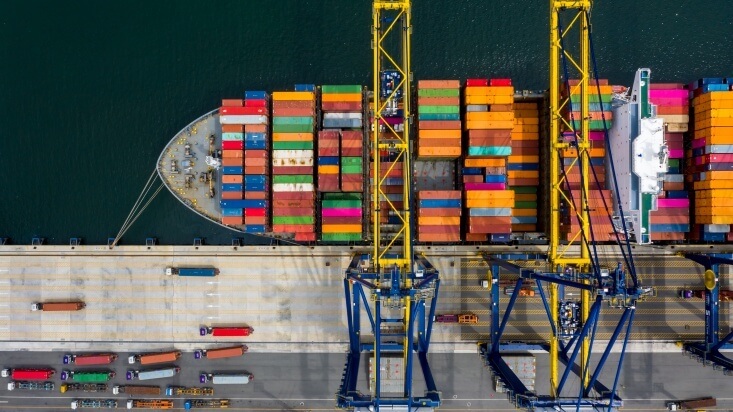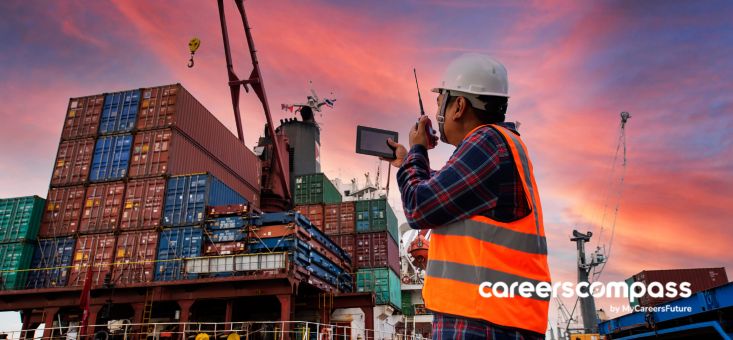Singapore is recognised as the top shipping hub in the Asia-Pacific region, so finding a job in the industry ensures you have plenty of opportunities for a thriving career.
Whether you’re looking to put your engineering skills to the test or have a great mind for logistics, there’s undoubtedly a rewarding role that’ll satisfy your professional aspirations.
With this industry ensuring the smooth flow of goods and people around the globe, working in one of the world’s most dynamic maritime sectors is bound to leave you feeling great about your future.
Singapore is home to one of the world’s leading maritime industries. If you’re looking to earn a great salary and benefit from outstanding career satisfaction, this guide will help you discover the perfect role for your needs.
What is the maritime industry?
Considering how the entire world is connected by waterways, it’s no surprise that the maritime industry plays a crucial role in our day-to-day lives. From the transport of food and electronics to tourism and aquaculture, approximately 90% of global trade is conducted via the international shipping industry.
Although many roles in the maritime industry take place on board a vessel, there’s also a myriad of positions in shipyards, ports and across related service businesses that keep the industry moving. As you gain experience, you can quickly climb up the ranks to a top-notch senior position.
Looking to join the maritime industry? Explore available job listings now on MyCareersFuture!
Why you should work in the maritime industry in Singapore
If you’re looking for a thriving industry in Singapore, the maritime sector is tough to beat. According to the Ministry of Education, the industry delivers about 7% of Singapore’s GDP, while more than 170,000 people work across varied businesses in the field.
As advanced technology, such as big data and robotics, takes the maritime sector to the next level, Singapore’s forward-thinking industry ensures you get to work alongside the latest developments. This way, you can position yourself as a global leader in everything maritime.
What qualifications do you need in Singapore’s maritime sector?
Considering the wide variety of roles available in the maritime industry, it’s easy to understand how varied qualifications and certifications open up your career path. Having a relevant diploma or degree in the following areas can also improve your earning potential when searching for the ideal role:
- Maritime Studies
- Business
- Shipping
- Logistics
- Economics
- Marine Engineering
- Mechanical Engineering
- Offshore Engineering
Looking for a new role? Explore over 100,000 jobs available on MyCareersFuture now!

Maritime sector salary estimation
Salaries of maritime professionals in Singapore vary depending on your level of experience and education. Below, we’ve explored estimated salaries, beginning with starting pay, for some of the most common positions for graduates and those seeking a mid-career switch.
Please take note that these figures are not officially approved by Workforce Singapore. These are deductions after pooling together data from various sources. These include:
- Indeed Salary Guide
- Glassdoor Salary Guide
- Jobstreet Salary Guide
- Talent Salary Guide
- PayScale
- Seedly
These only serve as a helpful benchmark of salaries in the maritime industry and are not indicative of actual salaries.
| Maritime Sector Salary Guide in Singapore | ||
|---|---|---|
| Role | Minimum Education Qualification | Salary |
| Marine Engineer | Degree | $3,225 – $5,625 |
| Marine Biologist | Degree | $4,800 – $8,300 |
| Marine Surveyor | Degree | $2,250 – $6,150 |
| Deck Officer | Certificate of Competency (Class 3) | $3,200 – $4,700 |
| Ship Operations Officer | Degree or Diploma | $2,800 – $5,200 |
| Maritime Lawyer | Degree | $3,900 – $17,500 |
| Marine Insurance Underwriter | Degree | $1,800 – $2,500 |
| Shipping Analyst | Degree | $2,800 – $3,300 |
| Ship Charterer | Diploma or Degree | $3,100 – $6,500 |
| Technical Superintendent | Degree | $6,500 – $12,200 |
Make your move into the maritime sector
Ready to put your skills to the test in the maritime sector? A wealth of exciting growth areas push standards to even higher levels, ranging from port automation and maritime technology to augmented reality and decarbonisation.
Meanwhile, completing relevant certifications and degrees in highly desirable areas ensures you earn the top wage for your skillset. Find out how you can make a mid-career switch to Singapore’s maritime industry and position yourself for a successful future.















